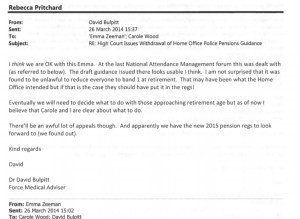‘Put all your eggs in one basket and you get a basket full of rotten eggs’
(Anon)
With acknowledgements to P. G. Wodehouse.
“I say, Jeeves! This egg smells rather whiffy,” said Bertie, wrinkling his nose in a way which the delightful Hermione Berkley-Houndstooth, current object of his affections, had admitted she found desperately appealing.
Jeeves paused momentarily from his accustomed daily task of ironing the morning edition of The Middleshire Racing Bugle to comment wryly, ‘In my experience sir, if something smells whiffy, then it is indeed usually whiffy. Perhaps you might care to refrain from consuming that particular egg sir.’
“Spot on, Jeeves. I say, you are a dashed clever fellow. What would a chap do without you, what?”
“Shall I select another egg for your consumption sir?” enquired the redoubtable Jeeves.
“Not bally likely, Jeeves old snort. Once whiffed, once shy, and that sort of thing. Chuck ’em all in the jolly old bin and toddle out and get some fresh ones, there’s a good chap.”
Jeeves sighed inaudibly, and put down the iron.
“And, Jeeves, when you toddle, be sure to toddle in a novel direction and obtain the said eggs from a different merchant.”
“Very good sir. Discretion would seem to dictate the wisdom of using a different purveyor, but I regret to venture that the results may be no different.”
Here at IODPA HQ we know a lot about rotten eggs, having seen them in the form of various HR managers, bean-counters and SMPs.
There is not much good to be said about a rotten egg. Once rotten, they tend to stay rotten. Their only saving grace is that they are scattered, thankfully fairly thinly at present, throughout the 43 police forces of England and Wales.
Police forces are so numerous because a wise Government, in the days when Government actually was wise, decided that policing was a local job to be done by local citizens, responsible only to the Crown, the law of the land, and the local elected members of the police authority.
Police injury pensions are the law of the land – they are the same for each force – but the administration of these pensions is in the hands, and at the mercy of, local administrators. Due to a change in the law, police authorities, who nominally at least were supposed to exercise some oversight and discretion have been disbanded, and all matters concerning injury pensions have been handed to a new office. Namely, the police pension authority.
Who, jaw-droppingly, is now the Chief Constable of each force. (Other than the City of London)
A moment’s pause for thought brings the name Robert Maxwell to mind. You may well remember that he was the disgraced media proprietor and one-time Member of Parliament, who used hundreds of millions of pounds from his companies’ pension funds to shore up the shares of the Mirror Group, intending to save his companies from bankruptcy.
Chief Constables have been taking a leaf from Maxwell’s book, and have been hungrily eyeing-up the sums of money they have to fork out from their budgets to pay the pensions of former officers who were permanently disabled in the line of duty. They see this money, not as just recompense for injury, but as a potential way of meeting the demands to trim their spending and to deliver more efficient policing.
Instead of selling off luxury cars fitted with discrete blue lights as a tax dodge and bunged to civilians to swan around in. Instead of culling the wasted hours and expense of membership of the largely useless private limited company which is the Association of Chief Constables. Instead of joining together to all buy standard computer systems which allows each force to more easily deal with crime. Instead of using combined purchasing power to secure a lower price on everything from uniforms, equipment and vehicles, to services such as accountancy and public relations, they have targeted the pensions of disabled folk.
“Wait a moment!” I hear the cry from some forces, ‘We are looking to make savings across the board, and injury pensions are just a part of the exercise.”
Sorry, Chiefs, but that just does not wash.
You have come upon this from entirely the wrong direction. IODPA accepts that no person should receive a higher rate of injury pension than appropriate. We also, and we may surprise you here, actually agree that the provision to hold reviews of degree of disablement – at appropriate intervals – is a sensible and necessary provision of the Regulations. You, Chiefs, however, think that all injury pensions are fair game, and that by devious and unlawful manipulations of reviews of degree of disablement your tame HR managers and SMPs will achieve reductions.
Your approach is wrong on all levels. Not least morally, and certainly financially. Parliament, representing the will, and blessing of the people, agreed that officers injured in the line of duty so badly that they could no longer perform the ordinary duties of a constable could be pensioned off. The pension was to be paid at a level which reflected each individual’s loss of capacity to work, and thus earn.
You, Chiefs, see fit to dishonour the sacrifices of the men and women who gave up their health whilst doing a job which is acknowledged as dangerous.
The fact is, Chiefs, that you have taken your eye off the ball. You have been listening to the warped whisperings of the bean-counters and the HR managers. The bean-counters know little, and care less, about injured officers. HR managers know nothing and care nothing about the Regulations which govern injury awards. They, at least, have excuses of misplaced objectives and ignorance.
You, Chiefs, have no such excuses.
We in IODPA hear that some nasty little twerps who frequent the meetings of the National Attendance Management Forum have been lobbying, on the grounds of cost-saving and rationalisation, that all services and administration of police injury pensions should be placed in the hands of a commercial company.
The arguments for this, which you will no doubt be asked to consider, mask the real intentions of the twerps. What they want to achieve is centralised control, by elements within the Home Office or their nominees, of the selection and training of the ”duly qualified medical practitioners’ who will be tasked with conducting their part in the reviews of individual’s degree of disablement. The twerps want to see SMPs become nothing more than the tools of a for-profit company. The twerps want to see degree of disablement calculated not by reference to medical condition, but to a theoretical figure derived by comparing theoretical wages. The twerps also want to see all injury pensions reviewed on a regular basis, regardless of the absence of any evidence of change in circumstances. The twerps, Chiefs, are doing a Maxwell.
We in IODPA say to you, Chiefs, clean up your HR Departments and sack the incompetent or train the ill-trained. You will save money as a result. Do not listen to your ignorant bean-counters and HR managers who have no concept of the reason, or true value, for there being in place a pension scheme for officers injured in the line of duty. Do not for a moment be fooled by these pygmies into thinking that a centralised administration of injury pensions will save your force money. It will not.
What will result is all the rotten eggs being put in one basket.
And that will create such a stink that you will never be rid of it.











 DCC Gareth Morgan
DCC Gareth Morgan 



Latest Blog Comments